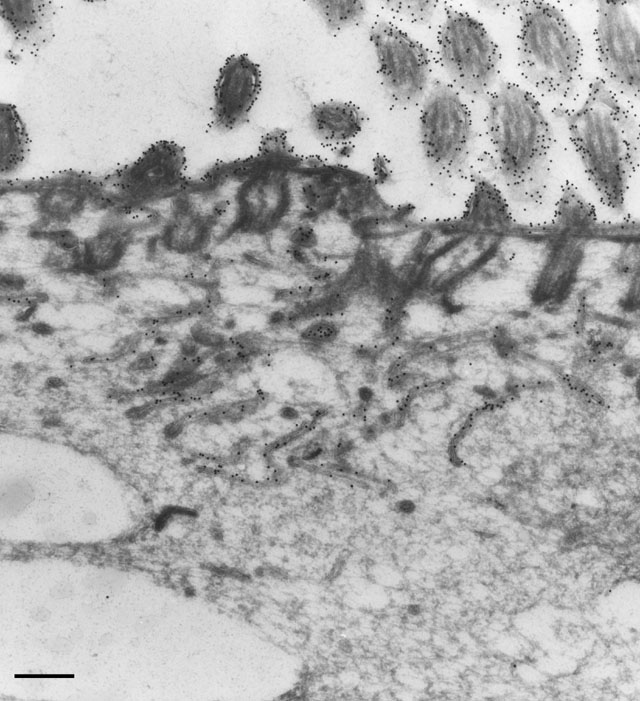|
We raised a monoclonal antibody (mAb) in mouse to an antigen called
C6 found on the surface of Paramecium. The location of the
antigen can be detected by electron microscopy by freezing
lightly-fixed cells, sectioning the cells at -1000C and
exposing the thawed sections first to mouse serum that contains the
mAb and then to an anti-mouse IgG that has been complexed with gold
particles. As seen in this micrograph the gold heavily labels the
ciliary membrane and cell surface. In addition the gold is found in
the parasomal sacs, in preendosomal vesicles and in early endosomes.
However, there is almost no gold in the small coated evaginations of
the early endosome or in the carrier vesicles escaping from the early
endosomes. We conclude that this antigen passes no further into the
cell and is recycled back to the plasma membrane. This antigen could
be a cargo receptor that is cycled between the plasma membrane and the
early endosome. The cargo may fall off this receptor in the early
endosome and be concentrated in the small coated evaginations as is
HRP (see Figure 6) for transport deeper into the cell. EM taken on
5/14/91 by R. Allen with Zeiss 10A TEM. Neg. 12,000X. Bar = 0.5µm.
Published in J. Cell Sci. 101:449-461, 1992.
|
